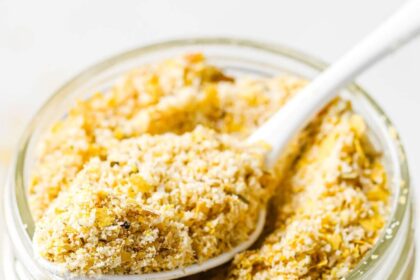SIBO Diet is crucial for managing small intestinal bacterial overgrowth effectively. If you have been diagnosed with SIBO, you may already know how challenging it is to find the right foods. Since certain foods can worsen symptoms, choosing the best ones is essential. Fortunately, a well-planned diet for SIBO can help reduce bloating, pain, and digestive discomfort. This guide will walk you through this diet food list, highlighting the best foods to eat and those to avoid. Let’s dive in!
Thank you for reading this post, don’t forget to subscribe!
What Is the SIBO Diet?
This Diet is a dietary approach designed to minimize bacterial fermentation in the small intestine. It focuses on reducing fermentable carbohydrates that fuel harmful bacteria. While no single diet works for everyone, most people benefit from a low-FODMAP diet, which restricts specific fermentable foods. By following this approach, you can relieve symptoms and promote gut healing.
Best Foods to Eat on an SIBO Diet
Choosing the right foods is essential for managing SIBO effectively. Here is a breakdown of the best foods to include in your diet:
Lean Proteins
Protein is crucial for gut health and does not ferment in the gut, making it ideal for this diet. Opt for easily digestible sources:
Chicken
Turkey
Lean beef
Eggs
Fish (salmon, cod, tuna)
Non-Starchy Vegetables
Vegetables are important but should be low in fermentable carbohydrates. Some excellent choices include:
Zucchini
Spinach
Kale
Cucumber
Bell peppers
Low-FODMAP Fruits
Fruits can be tricky, but some are safe in moderate amounts. Here are some suitable options:
Blueberries
Strawberries
Raspberries
Kiwi
Pineapple
Healthy Fats
Fats provide energy without feeding harmful bacteria. The best options include:
Olive oil
Coconut oil
Avocados
Ghee
Butter (in moderation)
Gluten-Free Grains
Whole grains should be limited, some gluten-free options work well in a diet for SIBO:
Quinoa
White rice
Oatmeal (certified gluten-free)
Buckwheat
Fermented Foods (in moderation)
Fermented foods help restore gut flora, but some people may be sensitive. Try these options cautiously:
Plain yogurt (lactose-free preferred)
Kefir (lactose-free)
Sauerkraut
Kimchi
Foods to Avoid on a SIBO Diet
Some foods can worsen SIBO symptoms by increasing bacterial overgrowth. Avoid these to prevent bloating and discomfort.
High-FODMAP Vegetables
Certain vegetables contain fermentable fibers that feed bacteria. Avoid:
Onions
Garlic
Cauliflower
Cabbage
Brussels sprouts
High-FODMAP Fruits
Some fruits contain excessive fructose, which can worsen SIBO symptoms. Steer clear of:
Apples
Watermelon
Mangoes
Cherries
Pears
Dairy Products
Dairy can be problematic, especially for those with lactose intolerance. Avoid:
Milk
Cheese (except aged varieties)
Cream
Ice cream
Legumes and Beans
Legumes are rich in fermentable carbohydrates and should be avoided. This includes:
Lentils
Chickpeas
Black beans
Kidney beans
Soy products
Processed and Sugary Foods
Refined sugars and processed foods can promote bacterial growth. Avoid:
Sodas
Candies
Pastries
Artificial sweeteners (sorbitol, xylitol)
Grains Containing Gluten
Gluten can worsen gut inflammation and SIBO symptoms. Avoid:
Wheat
Barley
Rye
How to Follow the SIBO Diet Successfully
Now that you know what to eat and avoid, here are some tips to make your diet work for you:
Meal Prep
Plan meals in advance to avoid unhealthy choices.
Portion Control
Keep portions small to prevent bloating.
Hydration
Drink plenty of water to support digestion.
Monitor Symptoms
Keep a food diary to track what works best.
Frequently Asked Questions (FAQs)
Can I eat bananas on a SIBO diet?
Bananas are high in fermentable carbohydrates, so they should be consumed in moderation. If tolerated, opt for unripe bananas, as they contain less sugar.
Is coffee allowed on a SIBO diet?
Coffee is acidic and can irritate the gut lining. If tolerated, drink it in moderation and avoid adding dairy or sugar.
How long should I follow the SIBO diet?
Most people follow this diet for 4-6 weeks. However, long-term success depends on reintroducing foods gradually while monitoring symptoms.
Conclusion
Above all, a SIBO diet is one of the best ways to manage symptoms and improve gut health. By focusing on the right SIBO diet food list, you can reduce bloating, pain, and digestive distress. Avoiding high-FODMAP foods while incorporating gut-friendly options will help restore balance. If symptoms persist, consult a healthcare provider for personalized guidance. Stick to the diet for SIBO, and you’ll be on your way to better digestive health!







